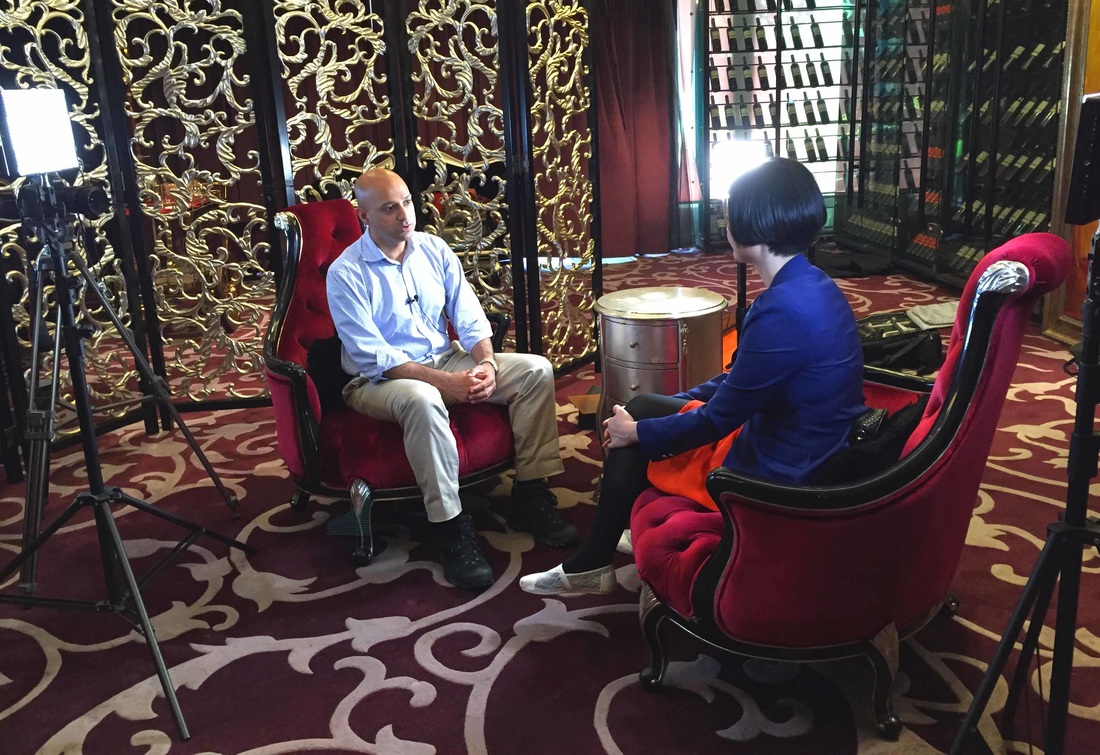|
Western firms that want to get their ‘Made in China’ products checked for quality need to scoop out the territory and choose reliable business partners at the ground level.
Perhaps the most talked about topic of the 21st century in the financial and manufacturing industries has been the emergence of China's booming economy, particularly in relation to global commodity markets. China is now not just the world's second largest economy but also a country undergoing a myriad of cultural and economic changes at a dizzying pace. These days, for newcomers to China, it doesn't take long to realise that the cost of living in a tier-one city, such as Shanghai and Beijing for example, is perhaps not much different from, say London or Singapore. This may also be true for second-tier cities that not many Westerners may have heard about, such as, for example, Guangzhou, Wuhan, Shenzhen, Chengdu and Chongqing. Of course, it goes without saying that you are still going to find a few towns and rural places where you can live a relatively inexpensive lifestyle compared to the bigger cities (Guiyang, the provincial capital of Guizhou Province is a prime example); however, on the whole, the country is not cheap anymore. Nevertheless, there is still one aspect of this booming economy that has most Western firms worried and one that is taken very seriously. I am talking about the quality control checks done on 'Made in China' products and especially the condition of the factories where those products are manufactured before they are exported and end up in luxury high-street stores in the West. At the same time, China is at a crossroads where the stance is slowly moving away from its image as a global hub full of 'sweatshops' to a consumer society. In recent years, China has considerably shifted from being a global manufacturing hub to one that caters for value-added sectors, such as in the innovation and design industry. Because land is becoming expensive in tier-one cities, the vast majority of manufacturers (both local and Western firms) are relocating to cities where land is cheaper. This has resulted in some cases where safety or the quality of the products has been compromised because manufacturers want to save costs. Nevertheless, many supply chain professionals in the West remain unusually unalarmed. "Oh, don't worry, everything will be fine," said one American importer at the Canton Trade Fair in Guangzhou earlier this year. "As the country continues to develop, the quality of its products and the factory conditions will improve." For a foreign company that is purchasing goods from China, knowing some of the major business principles that can determine the difference between success and failure in the quality of the products received across the globe, is crucial even before proceeding with the order online or on the phone. When choosing factories or companies, executives need to work out how the capital, product and labour markets work (or don't work) in the target country; and with China, this is absolute crucial. Sure, there are fake or bad quality products available in every country; however, the fact remains that the spotlight is especially put more on China. A number of high-profile cases of poor quality control in China in the past few years have raised question about how companies, both foreign and Chinese, can make sure that goods they produce in or source from China meet international quality, health and safety requirements. China, being the emerging market that it is, provides unique challenges, but they can be addressed, and eventually overcome, by a thorough, well prepared and well researched entry strategy. There is a whole range of advice about finding the right factories or checking the QC of products, provided by chambers of commerce, embassies, the home country's trade and industry organisations, expatriate blogs and groups, as well as other corporate professionals who have lived and worked in the host country. It's 2015 and while China has come a long way in the past 12 years or so and is pledging to clean up the image of a country that was known widely to manufacture fake products, there are still a few loopholes exposed here and there. Use every source available to find out about the local factory. Check references, particularly those of other foreign firms who have operated there. Hire a local lawyer or investigator to confirm that a potential local company or factory is in good standing with all QC checks, creditors and taxing authorities. If the destination is Shanghai or Chongqing, hiring a lawyer in Dalian or Macau will probably not be productive. It is best to find someone you can trust with contacts in the location where the potential factory or company conducts their manufacturing. In comparison, the factory information structure in a socialist society, such as China, is moderately frail. Workers cannot form independent trade unions in the labour market like in the West, which affects wage levels. Sound advice like this is priceless before entering this massive Asian dragon. Most Western businesses are unfamiliar with their industry markets in emerging economies, such as China. Therefore, it is vital that business owners and importers, especially newcomers to China, do not just look for advice from their management consultants, as the view from the ivory towers in London sometimes looks rather different from the reality on the ground in, say the outfields of Tianjin. Getting it right at the end means getting it right at the start; therefore preparation is crucial to success. Reliable Partners The quality and reliability of the local partner are two key components of success in China. Prior to commencing business with a factory, first establish what precisely is needed from them. Foreign companies need a local partner who is reliable, understanding, co-operative and trustworthy. They must also have a global mindset. The legal systems in China are often not in line with international standards or with Western laws. Local laws are often biased towards their governments and absent from free markets. Therefore any issues with your products relating to bad quality can create a complicated situation and court cases can take months, if not years, and often they are corrupt - though in recent years, both India and China have been trying to clean this stained image. Form takes preference over substance in ways completely unfamiliar to those in China. One minor methodological miscue on the foreign company’s part might negate its right to sue the local partner later on. In unfortunate circumstances it may even lead to the foreign company being expelled from the country, while its assets remain. A good partner may not necessarily have political connections. Usually as a business partner it is best practice not to be engaged politically for any non-business related issues, as this can prove to be risky for the executives and their business. Put in the personal time - hands down is the most important facet to doing business in China is building relationships. This is important in the West too, but not to the same degree. If you try hide behind emails and text messages in China you will get nowhere fast. Pick up the phone more often than you are comfortable with, and meet people face-to-face on every possible occasion. As soon as you do, you will start to notice the effects immediately. Visiting the Factory Premises Paying a visit to the manufacturing facility of the company in China you wish to source from is an essential first step of quality control. By going to the factory in person along with local experts who understand the product in detail will give you a first-hand perspective of what the conditions are like at the ground level. It may be worthwhile to take QC professionals who can help you to carry out detailed technical and non-technical checks. Andrew Reich*, CEO and Founder of InTouch Services based in the southern Chinese city of Shenzhen, lives by the word when it comes to checking the quality of ‘Made in China’ products. Reich, who started the company nine years ago with the help of a few American investors, says: “One of the most central concerns faced by Western businesses making strategic decisions in China is obtaining accurate market information. I am sometimes shocked at the attitude of many importers of ‘Made in China’ products in the US because they buy in bulk without knowing the true production history of the product’s lifecycle and then later come back with complaints when the products don’t work properly or are unsafe for domestic usage. If foreign executives can carry out the research for QC checks in Chinese factories before they enter China then a lot of hassle can be avoided from their part”. It’s important to get to know potential partners because if they are legitimate and want to work with you for the long term, they will expect you to want to get to know them better and think nothing of your wanting multiple meetings before signing any deal to export ‘Made in China’ goods. It may also be very useful to have your own people on the ground along with local QC inspectors, leading, training and instructing the local staff on business methods, business ethics, efficiency and quality control, among other things. Another approach is to have one local manager working alongside an expat manager to make joint decisions and avoid any cultural differences and conflicts in the workplace. Reich goes on to say: “People don’t realise the challenges involved but are just thinking about how much money they can make from coming to China, and it really is not that simple. China is an enormous, complex and unique market. The market information configuration about quality control is such that businesses have often been operating in their economies long enough to have built up a strong understanding and acceptance of their markets”. Monitoring the manufacturing process is crucial yet challenging when you have limited time during a factory visit, therefore it is best to rely on a well-known and trusted quality control company that can place professionals on your behalf to monitor the manufacturing process, right throughout the whole product lifecycle. Be careful and know the local rules and regulations prior to entering the country. The easiest way for a local competitor to force a foreign company out is for the company to engage in something illegal, although in some cases that may not be deemed ‘illegal’ in the company’s home country. For your peace of mind, it’s probably in your best of interests to request relevant references and customer endorsements from the manufacturers. This will enable you to gain more detailed knowledge and trust about the quality of the company’s manufacturing process. Building Relationships Many executives find that if a project or task takes twice as long in the developed world, then most likely it will take at least four times that in emerging markets. The challenge lies in the fact that business hosts in China will treat a foreign executive both as a businessperson and a professional coach because they will want to learn about how the company operates in Western economies. For the foreign executive, patience will be tested to the limit, especially if he or she has been sent to manage a start-up from scratch. Nevertheless, patience will be required in abundance because it could take many months before there is any sign of return on investment for the business. Engaging in quality control checks in China means taking nothing for granted because the things a Westerner is accustomed to, or any creature comforts that one is used to back home, might not exist in the emerging market. Culture shock will not only affect an executive’s personal lifestyle, but the corporate one too, and this is where an expat needs to find the balance to lead a successful life in an emerging market. China is not the West, and it's really important to embrace the cultural differences, not alienate yourself because of them. For example, I've found that whereas foreigners place more emphasis on things like contracts and punctuality, my Chinese friends and colleagues are more focused on building strong relationships and trust. If you're a foreigner trying to do business in China, don't get caught up on things that are only important to the Western mentality. Sometimes you need to "let go" of your previous ideals in order to find new opportunities in China. At the same time, it's still OK to be different. Your Chinese friends and colleagues understand that you come from a different culture, and that naturally you are going to act and display characteristics that are different from theirs. Don't be shy about saying what you feel and explaining the things that are important to you and your culture, and why. Others will appreciate this education. It is absolutely imperative that the manufacturer should be clear from your communications about your company’s specific requirements for quality standards. This will result from your company building a long-standing professional relationship and one that eliminates all the negativities that come along with cultural differences and misunderstandings. * Andrew Reich is the CEO of InTouch Manufacturing Services, a QC firm that performs product inspections and factory audits in China for US and EU clients. Andrew also maintains a QC-related blog, Quality Wars. Comments are closed.
|
Get in Touch:LIFE MATTERSHere I share my thoughts
and experiences during my travels, and how some things have affected my life as an expat and world traveller. Travelling is about capturing that moment in life. Every word, view and opinion on this page is that of Navjot Singh - except where indicated. The most recent is at the top. Scroll down to read the archive. Or search using CTRL+F (COMMAND + F) and enter a keyword to search the page. Just some of the stories you never heard before. The NAVJOT-SINGH.COM web blog is separate to this web site....Click blog, which may not be visible in some countries due to local firewall restrictions, so in those cases this weblog may be read. The weblog also includes some of my press trip reports- most of which are not published on the official blog because of copyright issues. The weblog also contains articles that may be associated directly with a PR trip for a country, airline or a hotel. These are PR reviews done in relations with various companies. If you are an investor or a trend watcher then you may find this website useful as investing has a lot to do with personal observations and finding the ideal trend or next big thing. The average human on the street frequently knows far more about the state of the economy than politicians, university professors, subject matter experts, and financial analysts who seldom travel, or if they do so, only from one hotel to another hotel! The pulse and vibrancy of an economy is nowhere more visible than on a country's streets. All photos and words are © Navjot Singh unless stated. Photos taken by others or by agencies are appropriately copyrighted under the respective name. No photo or word/s may be taken without the prior written permission by the author (i.e. Navjot Singh). All Rights Reserved. Archives
April 2024
Categories
All
|

 RSS Feed
RSS Feed







